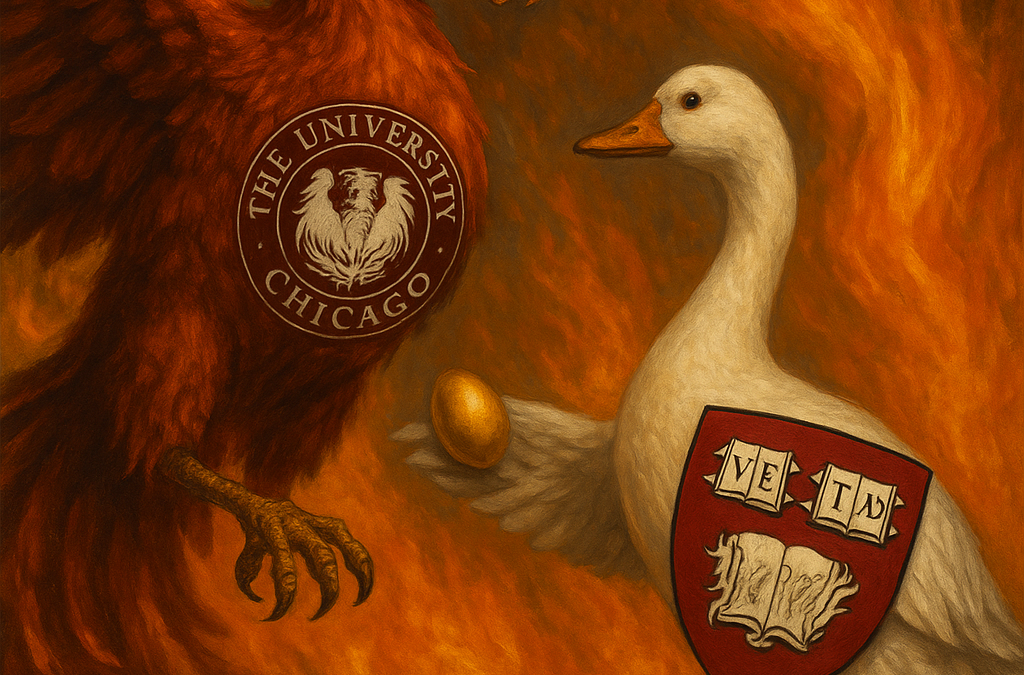One of the things I’ve come to really appreciate learning in college is the ability to just work, and work, and work. Sometimes I feel like my work ethic is just unending, and I can continue doing everything that I’m supposed to do, just efficiently and continually, almost like a machine.
I start, I take breaks specifically for the purpose of making sure that my work efficiency is maintained, then I begin again. The cycle continues, and life proceeds just in that way.
It’s one of the miracles that has come about, I think, from being trained in an environment where people were constantly working hard, and a place where people would not just work hard, but also have the right motivation, initiative, and desire for it.
Somehow or another, it influenced me, and rubbed off on me. And before I knew it, I was one of those workaholics out there, just casually pulling long hours without even questioning things, completely by my own volition.
It sounds bad, but I’ve come to appreciate that part of myself quite a bit.
It’s one of the many reasons that I respect myself, and appreciate the person that I’ve become. Because it’s become an enduring facet of my personality, and something that I know that I can look to whenever I think about my identity as a person, but at the same time, I think it’s come with at least two different disadvantages.
The first of these is that when I think about work, I just continue on and on. It takes hold like a vice grip, consuming almost every single aspect of my mind and my thoughts.
The result?
I just carry on doing things in the way that I feel most natural. Ignoring different things, socializing, hanging out, spending time with people, messaging…The list goes on, and I don’t know how many different things I’ve missed out on, just because I have this inclination within me that somehow or another just pushes me to carry on going on.
Both a blessing, yet also a curse in various ways.
The second of these things is that sometimes I’m inefficient on at least two different dimensions. The first of which is that in the midst of my work, I sometimes find distractions, one after another, that appeal in my life for the simple reason that I have many different things that I want to do, accomplish, and put into play.
This translates, I think, into moments of distraction or inefficiency, and just generally having to spend more time in certain circumstances on work which may have taken another person less time to do. This is something that I’m continually refining, and something that I hope to get a little better at in the time that I do have. But there’s one more aspect of that, which is perhaps more pernicious and pressing, and that is not knowing what exactly to work for. One thing I’ve learned about time is that work expands to fill the time that you allocate towards it, but at the same time it also shrinks.
The small and subtle things that a person does while they are working can change the entirety of their schedule, how well they can do things, how efficiently they can do things, whether or not they plan to do certain things.
Not knowing what to work for is anathema to progress, and oftentimes I think that that is my greatest flaw.
I find myself thinking about what to do before I get distracted into doing things that I feel are productive but actually are not. I do things that seem as if they are carrying me forward but in reality aren’t truly contributing towards my deeper purposes. It is this that yields wonder sometimes on my part about the direction that things happen to go in, for the simple reason that I had not thought about the direction sufficiently.
When I look back and evaluate the entire scope of my personality so far in relation to work, I can be thankful for at least a few things. I am thankful now that I see work as a natural expression of personality, inclination, and effort. I am thankful also for the way that it has just expanded over time to include so many different and interesting activities, opportunities to speak to different people, to teach, to learn, and to in part grow and ultimately develop as a person through the expansion of my mind on the basis of the quid pro quo from expanding the minds of others.
It is something that I deem positive, desirable, and meaningful on multiple different levels. At the same time though, when I think about work, I think that on multiple levels there are things that I can improve.
There can be parts of myself which I think are addictive in the sense that they continue forward with a single activity with narrow-minded focus. At the same time, there are parts of my personality that do not focus on the right things.
On the other hand, I can identify at least also a part of my brain that has yet to orient or direct my activities towards the right areas of focus in the very first place. And therefore, without the aim and in the absence of the target, there is no journey and destination.
In the past year, I’ve learned a lot about how to start projects, to move forward continually, even in an informal sense, and to just push forward unrelentingly with each day. I think that that has carried me in many ways across different projects, across many different plans, but I feel in various ways that it is not enough.
I look back and evaluate everything thus far, and I’m overcome with a sense of gratitude, because it feels like it had all just come to pass without me thinking too extensively about it, but I see also that the flip side of that is that maybe, because I didn’t think extensively about it, that there’s much more room to grow because there must be a new horizon ahead.
There always has been, and while it’s not guaranteed that there will continue to be, every time I thought that there was not, I found myself confounded, unable to disconfirm the reality of the new territories that lay ahead.
As time passes, I know that I will continue to grow. And as that happens, the part of me that seeks out growth will continue to push forward. I can only hope that he will not simply work relentlessly, but also take a moment once in a while to look back, to consider the broader picture, to see the flowers around him, not only in the service of finding out which direction to head in, but sometimes to be at peace with himself as well, and to become comfortable just doing absolutely nothing at all.
The journey continues.




